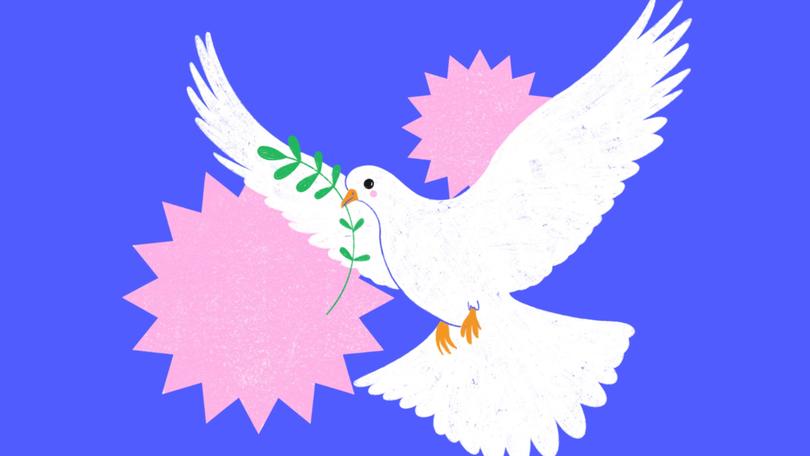How to forgive yourself and move forward with your life
Focusing on your own faults can not only be harmful psychologically but also medically, here are 10 tools for self-forgiveness

When I felt slighted by our couples therapist a while back, I overreacted and caused a stir.
My husband left him a message, demanding an apology.
My therapist eventually said he was sorry, and I forgave him, but my spouse held a grudge that sparked their 15-year estrangement.
Sign up to The Nightly's newsletters.
Get the first look at the digital newspaper, curated daily stories and breaking headlines delivered to your inbox.
By continuing you agree to our Terms and Privacy Policy.While the falling out inspired me to write a book on forgiving and apologising, I still feel terribly guilty about causing their never-ending rift.
It turns out that the guilt I feel isn’t unusual.
“A lot of us hold ourselves accountable for everything that’s gone wrong with our lives,” Judith Burdick, a psychoanalyst, said.
“But if you overfocus on your faults and can’t forgive yourself enough to practice self-love, you won’t be able to really give or receive love from someone else.”
Lack of self-forgiveness can not only be harmful psychologically but also medically, according to psychiatrist Vatsal Thakkar.
“It can lead to chronic stress and depression, which increases your risk of heart disease and cancer,” he said.
“If an inability to forgive yourself remains, you should look for professional treatment to help.”
Here are some ways to navigate the complicated process of accepting your flaws and mending hurt so you can move on.

Treat yourself like you would a loved one
“We’re often much harder on ourselves than others,” psychotherapist Justena Kavanagh said.
In her experience, this is often truer of women than men, in part because women tend to experience more self-doubt and take greater responsibility for relationships generally.
To get over a mistake you made, Ms Kavanagh recommends reframing the situation.
“Imagine how you’d forgive your child — or someone else close to you — who did the exact same thing you did, which can lead to increased compassion,” Ms Kavanagh advises.
Defang the anger
That’s what Manhattan psychiatrist Carlos Saavedra tells people to do when they’re upset with themselves.
“Instead of dwelling on what already happened … do something good for yourself in the present: exercise, eat healthier, see friends, try therapy with someone you trust or other ways to show kindness to yourself,” Dr Saavedra said.
“In paying attention to your own needs, you’ll heal faster.”
Consider anonymous restitutions
Ms Burdick recommends transforming your offence “into something positive”.
And, she said, “don’t deny your feelings, but don’t hyperfocus on the offense either”.
What does this look like?
“If you cheated on a test, volunteer to tutor students,” Ms Burdick said.
“If you stole books from the library, return or replace them. If your guilt centres on a crime you committed, donate to the Innocence Project, a legal defence trust for public defenders or crime victims. You can’t change the past, but you can do good in the world in the present and future.”
Get a different perspective
“When you can’t forgive yourself, remember all the obstacles you were facing at the time and that you did your best,” said Sherry Amatenstein, a licensed clinical social worker.
She quoted Maya Angelou: “Do the best you can until you know better. Then when you know better, you do better.”
Do an after-action review
Medical schools, the military and business all do reviews after significant failures.
“In medical schools, after a patient dies, they conduct a morbidity and mortality conference where the entire team discusses, in a nonjudgmental way, what happened, why it happened, what was learned and how to avert similar tragedies,” Dr Thakkar said.
The same approach works for individuals.
“Framed as a learning tool, reliving what happened dispassionately can ease the negativity and self-flagellation and prepare us better for next time,” he said.
Write a list of your worst offenses
“Get very specific about what you think you did wrong and still feel horrible about,” said Fred Woolverton, a psychologist who specialises in addiction.
“Admitting your shortcomings and wishing you’d done things differently is how you start taking responsibility and making amends, which is important to 12-step programs.”
Recovering could include writing an apology to yourself, Mr Woolverton says.
“Then decide to change and go forward beginning today,” he said.
Unravel the deeper roots of your regret
“When you’re struggling to forgive yourself, figure out what meaning you’re giving the act that you’re still punishing yourself for,” psychotherapist Dennis Palumbo said.
“Does it echo shame from childhood? Did a parent make you feel that one misstep meant you were a bad person? You have to understand that every human being makes mistakes. Perfectionism is a harmful ideal. If you try to be perfect, you’ll lose every time.”
Blame someone else
Really! Often, another person should be held accountable.
An important step toward getting over estrangements and trauma is to understand that you’re often only guilty of believing what someone you loved told you, said Ramani Durvasula, author of “It’s Not You: Identifying and Healing From Narcissistic People.”
“If somebody abused your trust and vulnerability, it’s not your fault - full stop. Even if you don’t leave the relationship - still not your fault,” Dr Durvasula insists.
“Knowing you did nothing wrong and don’t ever have to see or forgive the person who harmed you if you’re not ready can be liberating and healing.”
Realize you have many options
“I’ve spent 40 years helping people learn they have choices,” said retired psychotherapist Emanual Mandel, a Holocaust survivor.
“I’ve learned that you can get over anything. Make art from your pain. Try a therapy group, new class or seek out a mentor to help remove barriers and get fresh insight to start over.
“Although you can’t change the past, feeling stuck without any choice is demeaning and devastating. You have the power to open a window,” Mandel says.
Remember that it’s never too late to forgive
In his hospice work, Rabbi Joseph Krakoff finds it can be powerful to lead families in an end-of-life prayer they recite together: “You are forgiven. I forgive you. Please forgive me. I love you.”
“You can repeat that prayer on your own like a mantra,” Rabbi Krakoff says, “extending that grace to people in your life — even posthumously — and to yourself.”
Susan Shapiro is the author of the memoir “The Forgiveness Tour.”
© 2024 , The Washington Post.
Originally published as 10 tools for forgiving yourself and moving forward with your life
